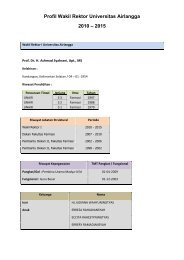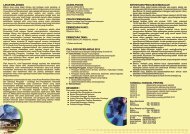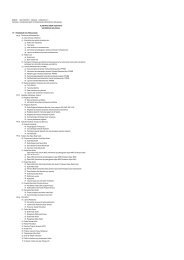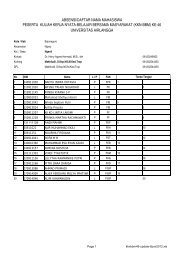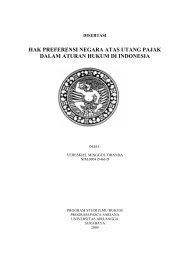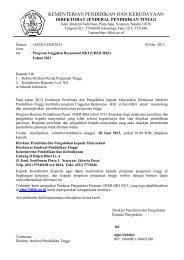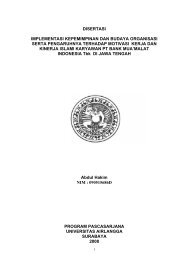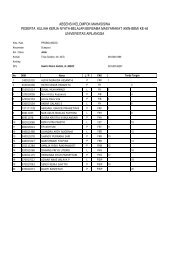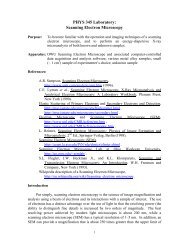Nietzsche's Naturalistic Ethics - UNAIR | E-Book Collection
Nietzsche's Naturalistic Ethics - UNAIR | E-Book Collection
Nietzsche's Naturalistic Ethics - UNAIR | E-Book Collection
Create successful ePaper yourself
Turn your PDF publications into a flip-book with our unique Google optimized e-Paper software.
A seemingly straightforward way to account for ressentiment is to explain it in terms of theinternalization of oppressed instincts. Anger and resentment (or earlier versions thereof) plausiblyarise when those instincts are “pushed back,” to use an expression that Nietzsche employs whendiscussing the development of guilt (GM II, 21). That is, they arise as emotional counterparts to thepractice of discharging aggressive instincts, just as guilt (as discussed later) arises as the emotionalcounterpart to the practice of ancestral worship once the Christian sittliche Weltordnung is in place. 11However, a satisfactory account of ressentiment will be more involved. For outside the Genealogy,Nietzsche also conducts a recognizable discussion of ressentiment individuals feel towardsthemselves. This ressentiment exists even before the priests assume their roles as direction-changersof ressentiment, persuading the ressentiment-driven “herd” to blame themselves rather than todischarge their ressentiment towards others (cf. GM III, 15). This notion of ressentiment towardsoneself and the character dominated by this sentiment is present in Nietzsche’s writings at least sincethe Second Untimely Meditation, although he does not use the word “ressentiment” prior to theGenealogy. Yet the existence of ressentiment towards oneself is puzzling within Nietzsche’s modelbecause the aggressive instincts were not directed against the individuals themselves either. It is for“ressentiment” from a French world “ressentiment,” which is spelled and pronounced alike andis the source of the former. He suggests that the French word expresses “a more straightforwardannoyance, less of a grudge than the German word does.” I agree with this suggestion, and takeit to be compatible with my suggestion above. Scheler (1955) remarks that he uses the word“ressentiment” because he was unable to translate into German (p 36); he emphasizes inparticular that the word “ressentiment” denotes a repeated re-living and re-feeling of the past.11 Cf. A 26: “What does ‘moral world order’ (sittliche Weltordnung) mean? That there isa will of God, once and for all, as to what man is to do and what he is not to do; that the value ofa people, of an individual, is to be measured according to how much or how little the will of Godis obeyed; that the will of God manifests itself in the destinies of a people, of an individual, asthe ruling factor, that is to say, as punishing and rewarding according to the degree ofobedience.”9



